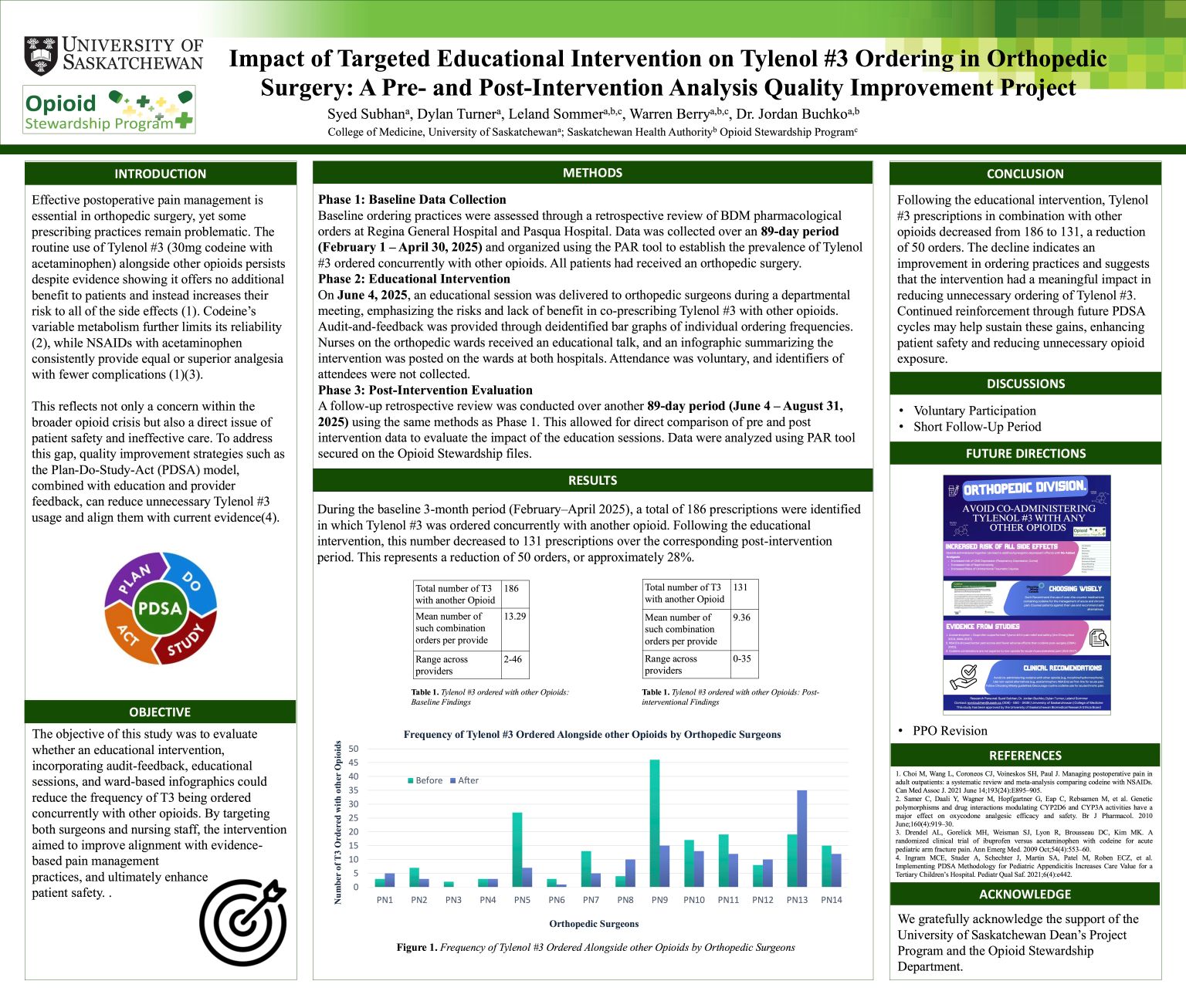
Impact of Targeted Educational Intervention on Codeine Prescriptions in Orthopedic Surgery: A Pre- and Post-Intervention Analysis Quality Improvement Project.
Syed Subhan
Introduction:
Effective postoperative pain management is essential in orthopedic surgery; however, some
ordering practices pose risks without clinical benefit. A prevailing issue is the use of Tylenol #3
(T3) which is codeine with acetaminophen in combination with other opioids. Evidence shows
this practice does not improve pain control and instead increases the risk of opioid-related side
effects.
Methods:
A quality improvement (QI) project was conducted at Regina General and Pasqua Hospitals in
three phases. Baseline data on T3 co-ordering with other opioids were collected retrospectively
from February - April 2025 using the BDM system and PAR tool. On June 4, 2025, an
educational intervention was delivered to orthopedic surgeons with audit-feedback, and there
also education sessions for orthopedic nurses. A post intervention data collection was done
covering June-August 2025 to assess changes in ordering patterns.
Results:
During the baseline period, 186 prescriptions were identified where T3 was ordered alongside
another opioid. Post-intervention, this decreased to 131 prescriptions, representing a reduction of
50 orders.
Conclusion:
The intervention demonstrated that targeted education and audit-feedback can meaningfully
reduce unnecessary T3 ordering. Continued reinforcement through future Plan-Do-Study-Act
cycles may further align practice with evidence-based standards, reducing opioid exposure, and
enhancing patient safety.
